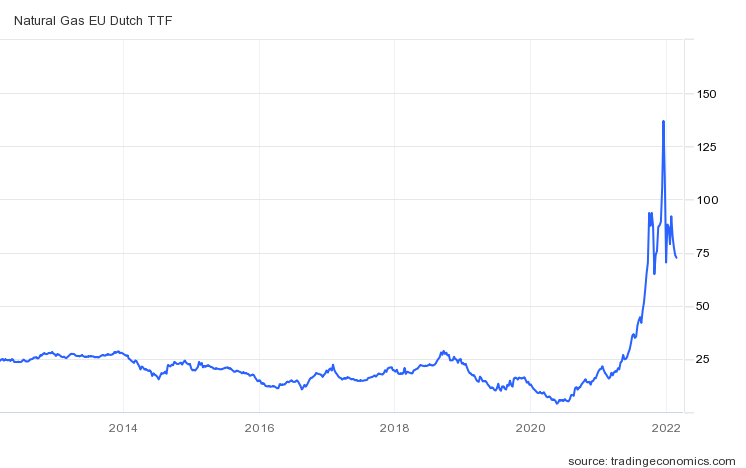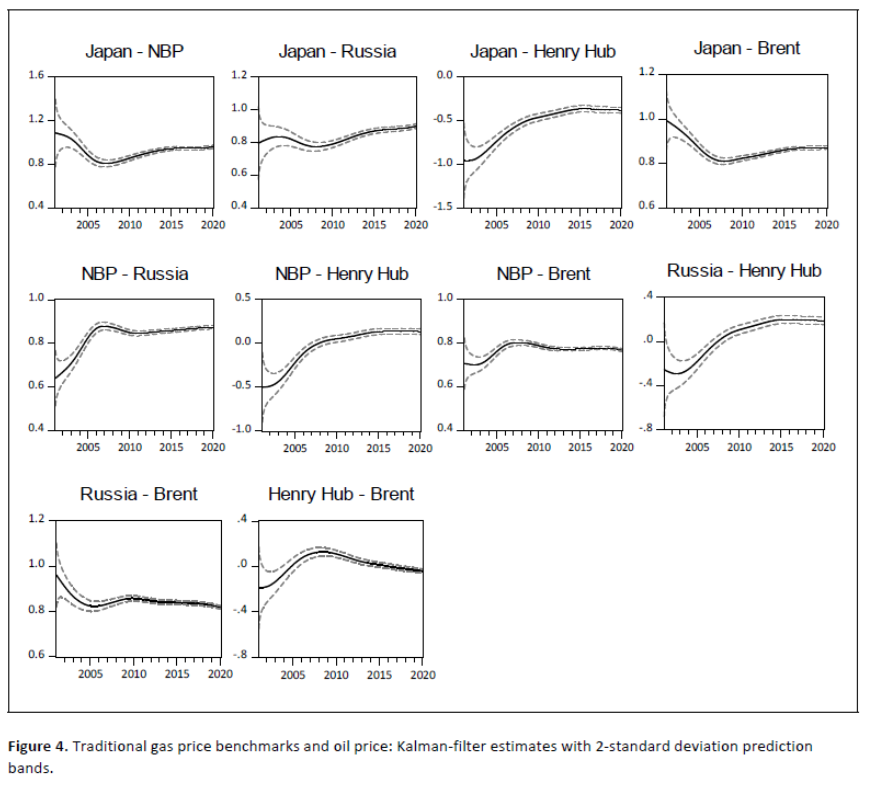Would Pumping More Natural Gas In America Have Countered Russian Pressure?
A reader suggests this is the case. Well, if there was an integrated natural gas market, maybe. (To anticipate the answer to the question: Duh, NO).
A first glance at actual data (i.e., linking up with reality) is useful. I plot US natural gas prices (Henry Hub) and TTF Dutch natural gas prices, as of today, for the past 10 years.


I’m hard-pressed to see a high correlation between the two (even if HH is in $, and TTF Dutch is in euros), partly because of the spike in February 2021 prices for the US (thanks, ERCOT!).
I could download the data from somewhere and run some regressions – but I know from my previous work (going back to the days of the Cheney task force on energy policy development) that the natural gas market has been historically fragmented, and despite the development of LNG transportation, barriers remain.
A recent study confirms my impression (not peer-reviewed, but the methodology seems reasonable to me.) From Loureiro et al. (2022):
…[T]his study conducts growth convergence testing and clustering analysis on a panel comprised of four established gas price benchmarks and two emerging ones that expand up to the pre-Covid-19 period. The most significant finding is that no gas price convergence can be found outside Europe. This is despite the existence of episodes of partial convergence that are identified in the literature, and replicated and explained here. Importantly, the results strongly reject the postulate that increased LNG flows serve as a price-levelling arbitrage mechanism.
Once one sees the relative magnitudes of flows, one can see why price equalization would be unlikely.

The authors do two tests, one involving a panel, and one involving bivariate estimates of the law of one price for natural gas prices, using a Kalman filter. I’ll rely on the latter (mostly because I understand what’s going on there). Very simply, convergence to law of one price (LOOP) implies a coefficient (allowed to vary over time) moving toward.

Source: Loureiro (2022).
And for shorter sample:

Source: Loureiro (2022).
A unit coefficient indicates LOOP. Notice you can always reject a unit coefficient for Henry Hub with pretty much anybody else, but certainly for TTF Dutch, which is the relevant issue for our question of whether pumping more natural gas in America would’ve mattered for European natural gas prices.
Bottom line: stay away from simple-minded nostrums like “if only we’d pumped a lot more natural gas in America, Russia wouldn’t be able to pressure Europe”; more basically, spend 30 seconds doing some research before pontificating.
Disclosure: None.




Loading comments, please wait...